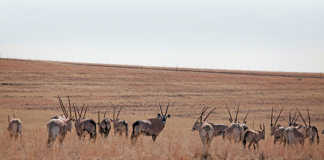Dawie Maree, senior economist at Agri SA, said during an election year, no decision-making takes place in government in the months before the polls. There will also be insecurity among local and international investors, while the exchange rate may become more volatile, and even depreciate slightly, Maree said.
Nico Groenewald, head of Standard Bank Agribusiness, said the volatility of the exchange rate made it challenging to compete with imports from other manufacturing economies. “Our current account deficit will continue to draw attention in 2014 and will need to be addressed. We will also have to increase exports,” Groenewald said.
Maree said slow international economic recovery will play an important role in 2014, affecting SA’s export industry and foreign exchange earnings. The biggest economic challenges for agriculture in 2014, are administered prices and input cost increases, he said. “Opportunities to grow the export market are also limited and there is uncertainty about economic policy due to elections.”
Read: Tough year ahead for sugar
Referring to commodity prices, Maree said it would depend on production conditions and current dry conditions in parts of the country. This may push prices up, affecting consumers’ food prices.“Administered prices will likely increase by more than the rate of inflation. Electricity increases will be more or less 8% and other input prices linked to the exchange rate, will also increase.”
Groenewald added that GDP growth will remain shallow. “SA will achieve growth of only 2,1% for 2013, with a possible increase to 2,5% in 2014. Consumer Price Inflation should average 5,8% in 2013, falling to 5,6% for 2014. The repo rate is expected to remain unchanged at 5%.”
Maree believes there were still numerous opportunities in agriculture. “But it is important to increase producers’ share of the consumer’s rand – value-adding could present an opportunity. Non-traditional export markets may pose a risk, but also opportunities,” he said.
Groenewald advised farmers to consider collaboration, joint ventures, and amalgamations, while mechanisation, increasing the labour force’s skills, and improved marketing will result in bottom line gains, he said.
Follow updates on Twitter #FWoutlook2014












